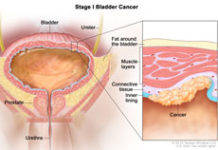Adagrasib demonstrated antitumour activity in the KRYSTAL-1 phase I/II study conducted among heavily pretreated patients with KRAS G12C–mutated metastatic colorectal cancer (mCRC), both as oral monotherapy and in combination with cetuximab. The median response duration was 7.6 months, and the median progression-free survival (PFS) was 6.9 months in the combination treatment group. In this ongoing study, both treatments produced reversible side effects in the majority of patients and resulted in no new safety concerns. The biologic activity of adagrasib appeared to be greater in combination with cetuximab and supports ongoing clinical investigation according to the KRYSTAL-1 investigators. The findings are published by Dr. Samuel J. Klempner of the Department of Medicine, Division of Hematology–Oncology, Massachusetts General Hospital in Boston, MA, US and colleagues on 21 December 2022 in The New England Journal of Medicine.
KRAS drives oncogenesis in up to 50% of patients with CRC. KRAS G12C mutation occurs in 3-4% of patients with CRC and impairs GTP hydrolysis, which shifts KRAS to the active GTP-binding state to drive protumourigenic effector signalling.
The authors wrote in the background that fluoropyrimidine-based chemotherapy regimens with oxaliplatin, irinotecan, or both are cornerstone treatment for mCRC. In KRAS–mutated CRC, VEGF inhibitors have improved outcomes in first- and second-line treatment when added to a chemotherapy backbone. Third-line treatment options are limited to regorafenib and trifluridine–tipiracil, which have extended median overall survival (OS) by less than 2 months over placebo and have been associated with a low response rate and median PFS of approximately 2 months which highlight the need for new approaches. The therapeutic landscape of mCRC cancer is moving toward biomarker-selected strategies. However, options are limited to agents directed at tumours carrying BRAF V600E mutations and to PD1 antibodies in patients with high microsatellite instability or mismatch-repair deficiency. The emergence of drugs that target KRAS G12C mutation represents a new treatment strategy in this population.
KRAS mutations have historically been considered ‘undruggable’. Retrospective series suggest that the presence of the KRAS G12C allele is associated with worse survival than other KRAS mutations in patients with CRC. However, recent progress has led to the development of small molecules that can occupy the KRAS switch II binding pocket and covalently bind to the mutant cysteine to prevent GTP binding. Currently, no treatments that specifically target KRAS G12C protein have been approved for the treatment of CRC.
Adagrasib is an orally available, small-molecule covalent inhibitor of KRAS G12C that irreversibly and selectively binds the mutant protein in its inactive, GDP-bound state. Adagrasib has favourable pharmacokinetic properties, including a long half-life (23 hours), dose-dependent pharmacokinetics, and central nervous system (CNS) penetration. Preliminary data indicate clinical activity in pretreated patients across 9 tumour types with KRAS G12C mutations, including those with CRC, non-small cell lung cancer, pancreatic and biliary tract cancers, and other gastrointestinal and non-gastrointestinal cancers.
The authors stated that although early data from a study of adagrasib monotherapy are promising in patients with KRAS G12C–mutated CRC, reactivation may occur in the RAS–MAPK signalling pathway because of adaptive feedback mediated by EGFR. Preclinical studies have shown that combining an antibody against EGFR with a KRAS G12C inhibitor could be an effective clinical strategy to mitigate EGFR reactivation. Cetuximab is an anti-EGFR monoclonal antibody that is indicated for the treatment of RAS wild-type mCRC, either as monotherapy or in combination with chemotherapy. Combining cetuximab with adagrasib may enhance the inhibition of KRAS-dependent signalling or overcome adaptive feedback to delay resistance and improve outcomes.
In KRYSTAL-1 phase I/II, open-label, non-randomised clinical study, the investigators assigned heavily pretreated patients with KRAS G12C–mutated mCRC to receive adagrasib monotherapy 600 mg orally twice daily or adagrasib at the same dose in combination with intravenous cetuximab once a week with an initial loading dose of 400 mg/m2 of body surface area, followed by a dose of 250 mg/m2 or every 2 weeks with a dose of 500 mg/m2. The primary endpoints were objective response (complete or partial response) and safety.
Until 16 June 2022, a total of 44 patients had received adagrasib, and 32 had received combination treatment with adagrasib and cetuximab. Median follow-up was 20.1 months and 17.5 months in two groups. In the monotherapy group comprising 43 evaluable patients, a response was reported in 19% of the patients (95% confidence interval [CI] 8 to 33). The median response duration was 4.3 months (95% CI 2.3 to 8.3), and the median PFS was 5.6 months (95% CI 4.1 to 8.3). In the combination group comprising 28 evaluable patients, the response was 46% (95% CI 28 to 66). The median response duration was 7.6 months (95% CI 5.7 to not estimable), and the median PFS was 6.9 months (95% CI 5.4 to 8.1).
The percentage of grade 3 or 4 treatment-related adverse events was 34% in the monotherapy group and 16% in the combination group. No grade 5 adverse events were observed.
The authors commented that they provide clinical evidence that KRAS G12C mutation can be targeted in mCRC, with activity observed for adagrasib as monotherapy and in combination with cetuximab in heavily pretreated patients. These results show the activity of combined KRAS and EGFR inhibition in patients with CRC, a finding that is consistent with preclinical observations.
The authors underlined that adagrasib and sotorasib are both selective covalent inhibitors of KRAS G12C, but pharmacologic differences between the two drugs have been reported, including half-life (5 hours for sotorasib and 23 hours for adagrasib), dose-dependent exposure with adagrasib, and potential CNS penetration with adagrasib. In a recent phase II study of sotorasib, a response of 10% was observed, with a median response duration of 4.2 months in pretreated patients with KRAS G12C–mutated mCRC. In KRYSTAL-1, adagrasib monotherapy resulted in a response of 19% and a median response duration of 4.3 months. In addition, adagrasib monotherapy was associated with a median PFS of 5.6 months and median OS of 19.8 months.
These results are clinically meaningful and in line with the activity seen in 220 patients with BRAF V600E–mutated mCRC who received encorafenib plus cetuximab. Among these patients, the response was 19.5%, with PFS of 4.3 months, OS of 9.3 months, and a response duration of 5.5 months. Outcomes with adagrasib monotherapy compared favourably with those associated with trifluridine–tipiracil, a current standard-of-care third-line treatment that were observed in a study involving 534 patients, who had a response of 1.6%, PFS of 2.0 months, and OS of 7.1 months. Findings in the monotherapy cohort also compared favourably with the results of a study of regorafenib, another third-line treatment involving 505 patients, who had a response of 1.0%, PFS of 1.9 months, and OS of 6.4 months.
Reactivation of the EGFR pathway in mCRC as an adaptive response to KRAS G12C inhibition suggests that combining KRAS G12C and EGFR inhibitors may enhance biologic activity. However, combination of adagrasib plus cetuximab did not produce synergistic side effects and observed treatment-related adverse events were consistent with those reported for each treatment alone.
In an exploratory analysis of ctDNA, at least 95% plasma clearance of the KRAS G12C mutant allele was observed in 55% of evaluable patients in the monotherapy group and in 88% in the combination group, which suggests a greater depth of ctDNA response for the combination.
Exploratory analyses showed that co-occurring TP53 and PIK3CA mutations had no apparent association with the response to adagrasib, but interpretation was limited by the small sample size.
The study has some limitations. The non-randomised design does not allow for direct comparisons between groups. The small number of patients who were enrolled resulted in wide CIs for median OS. In addition, a larger percentage of patients received subsequent anticancer treatment in the monotherapy group than in the combination group.
The activity and safety of adagrasib plus cetuximab in patients with KRAS G12C–mutated CRC is being evaluated in the ongoing phase III KRYSTAL-10 study as second-line treatment as compared with standard and in the ongoing phase II cohort of the current study as late-line treatment. In this study, the biologic activity of adagrasib appeared to be even greater in combination with cetuximab and supports ongoing clinical investigation.
The study was supported by Mirati Therapeutics and by a grant to the Memorial Sloan Kettering Cancer Center from the US National Cancer Institute.
Reference
Yaeger R, Weiss J, Pelster MS, et al. Adagrasib with or without Cetuximab in Colorectal Cancer with Mutated KRAS G12C. N Engl J Med 2023; 388:44-54.






